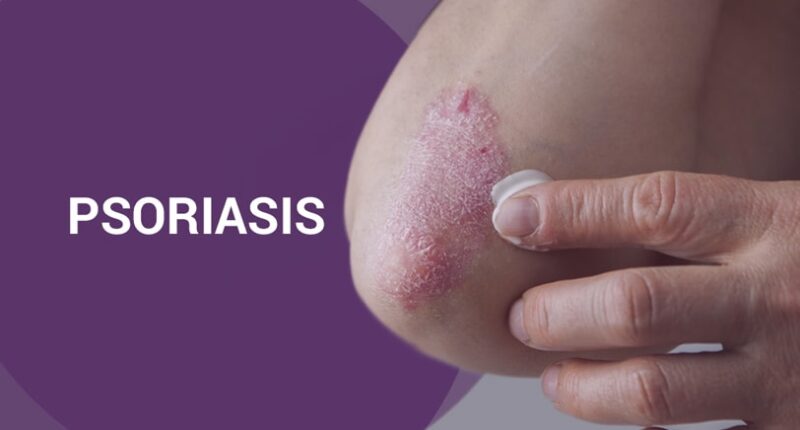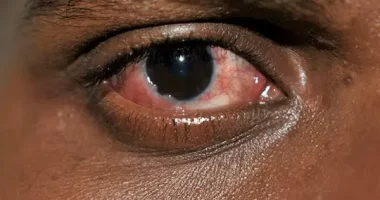A look at “What Is the Best Treatment for Psoriasis?” Psoriasis is a chronic autoimmune skin condition that affects millions of people worldwide. It is characterized by the rapid buildup of skin cells, resulting in dry, red, and scaly patches on the skin’s surface. This article will provide a comprehensive overview of psoriasis, including its symptoms, causes, diagnosis, and the best available treatment options to manage this condition effectively.
Table of Contents
Understanding Psoriasis

What is Psoriasis?
Psoriasis is a non-contagious skin disorder that speeds up the life cycle of skin cells. In normal circumstances, skin cells grow and shed every 28 to 30 days. However, in individuals with psoriasis, this process accelerates to a mere 3 to 4 days, leading to the accumulation of dead skin cells on the surface of the skin.
Types of Psoriasis
Psoriasis presents in various forms, with each type having distinct characteristics. The most common types include plaque psoriasis, guttate psoriasis, inverse psoriasis, pustular psoriasis, and erythrodermic psoriasis. Each type differs in terms of appearance, severity, and affected areas of the body.
Symptoms of Psoriasis
The symptoms of psoriasis vary depending on the type and severity of the condition. Common symptoms include red patches of skin with silver scales, dry and cracked skin, itching, burning or soreness, and thickened or pitted nails. Psoriasis can occur on any part of the body, including the scalp, elbows, knees, and lower back.

Causes of Psoriasis
The exact cause of psoriasis is not fully understood, but it is believed to be a combination of genetic and environmental factors. Certain triggers, such as stress, infections, injuries to the skin, and certain medications, can exacerbate or activate psoriasis symptoms in susceptible individuals.
Diagnosing Psoriasis
Diagnosing psoriasis is primarily based on a thorough physical examination and a review of the patient’s medical history. In some cases, a skin biopsy may be performed to confirm the diagnosis and rule out other skin conditions. It is crucial for individuals experiencing symptoms to consult a dermatologist for an accurate diagnosis. [1]
Available Treatments for Psoriasis
Several treatment options are available to manage psoriasis effectively. The choice of treatment depends on the severity of the condition, the affected areas, and the individual’s response to previous treatments. The primary treatment approaches include topical treatments, phototherapy, systemic medications, biologic therapies, and lifestyle and home remedies. [2]
Topical Treatments
Topical treatments are often the first line of defense for mild to moderate cases of psoriasis. These medications are applied directly to the affected skin to reduce inflammation, control itching, and promote the shedding of dead skin cells. Common topical treatments include corticosteroids, retinoids, coal tar, salicylic acid, and moisturizers. They are available in various forms such as creams, ointments, gels, and shampoos.
Phototherapy
Phototherapy, also known as light therapy, involves exposing the skin to ultraviolet (UV) light under medical supervision. This treatment can help slow down the rapid growth of skin cells and reduce inflammation. Phototherapy can be administered using different methods, including UVB therapy, narrowband UVB therapy, and PUVA (psoralen plus ultraviolet A) therapy. It is an effective option for managing widespread or resistant psoriasis.

Systemic Medications
For more severe cases of psoriasis that do not respond to topical treatments or phototherapy, systemic medications may be prescribed. These medications work from within the body to target the underlying causes of psoriasis and suppress the immune system’s overactive response. Systemic medications include methotrexate, cyclosporine, acitretin, and apremilast. They are usually reserved for severe psoriasis or when the condition significantly impacts a person’s quality of life.
Biologic Therapies
Biologic therapies are a newer class of medications that specifically target the immune system molecules responsible for causing psoriasis. These medications are usually administered through injections or intravenous infusions and can provide significant relief for moderate to severe psoriasis. Biologics commonly used for psoriasis treatment include adalimumab, etanercept, infliximab, ustekinumab, secukinumab, ixekizumab, and brodalumab.
Lifestyle and Home Remedies
In addition to medical treatments, certain lifestyle changes and home remedies can help manage psoriasis symptoms and improve overall well-being. These include:
- Moisturizing regularly to keep the skin hydrated.
- Avoiding triggers such as stress, smoking, and excessive alcohol consumption.
- Maintaining a healthy weight and adopting a balanced diet rich in fruits, vegetables, and omega-3 fatty acids.
- Practicing stress management techniques like meditation, yoga, or deep breathing exercises.
- Avoiding harsh soaps and detergents that can irritate the skin.
- Using a humidifier to add moisture to the air in dry environments.
- Gently removing scales or plaques to reduce discomfort.
Best Treatment Options for Psoriasis
The best treatment options for psoriasis depend on various factors, including the type and severity of psoriasis, the affected areas, and individual preferences. Here are some recommendations for different scenarios:
Mild Psoriasis
For individuals with mild psoriasis, where the affected areas are limited, topical treatments such as corticosteroids, retinoids, or vitamin D analogs may be sufficient to manage symptoms and control flare-ups. It is important to follow a consistent skincare routine and use the prescribed medications as directed by a healthcare professional.
Moderate to Severe Psoriasis
Moderate to severe psoriasis may require a combination of treatment approaches. Phototherapy, systemic medications, or biologic therapies may be recommended based on the individual’s response to previous treatments and the overall impact of psoriasis on their quality of life. It is essential to work closely with a dermatologist to determine the most suitable treatment plan.
Scalp Psoriasis
Scalp psoriasis can be particularly challenging to manage due to the presence of hair. Medicated shampoos containing ingredients such as coal tar, salicylic acid, or ketoconazole can help reduce scalp inflammation and remove scales. In some cases, topical corticosteroids or calcipotriene (a form of vitamin D) may be prescribed. It’s important to gently massage the scalp during shampooing and thoroughly rinse the hair to ensure effective treatment.
Nail Psoriasis
Nail psoriasis affects the nails, causing changes in their appearance, such as pitting, discoloration, and crumbling. Treatment options for nail psoriasis include topical medications like corticosteroids or calcipotriene, injection of corticosteroids directly into the nail bed, or systemic medications for more severe cases. Regular trimming and moisturizing of the nails can also help improve their condition.
Psoriatic Arthritis
Psoriatic arthritis is a condition that occurs in some individuals with psoriasis, causing joint pain, stiffness, and swelling. Treatment for psoriatic arthritis may involve a combination of medications, including nonsteroidal anti-inflammatory drugs (NSAIDs), disease-modifying antirheumatic drugs (DMARDs), and biologic therapies that target both psoriasis and arthritis symptoms. Physical therapy and lifestyle modifications, such as regular exercise and joint protection techniques, can also provide relief. [3]
Conclusion
Psoriasis is a chronic autoimmune condition that requires long-term management. While there is no definitive cure for psoriasis, various treatment options are available to alleviate symptoms, reduce inflammation, and improve quality of life. The best treatment approach depends on the individual’s specific condition, including the type and severity of psoriasis, affected areas, and personal preferences. Consulting with a dermatologist is crucial to develop a personalized treatment plan that addresses the unique needs of each individual.
With the right treatment and lifestyle modifications, individuals with psoriasis can effectively manage their condition and minimize its impact on their daily lives. Ongoing research and advancements in treatment options provide hope for continued improvement in managing psoriasis and enhancing the overall well-being of those affected.
FAQs
A: Psoriasis is a chronic condition with no known cure. However, with appropriate treatment and lifestyle modifications, symptoms can be effectively managed, leading to significant improvement in the quality of life for individuals with psoriasis.
A: While natural remedies may help alleviate symptoms and provide temporary relief, there is limited scientific evidence to support their effectiveness. It is important to consult with a healthcare professional for appropriate medical treatment and advice.
A: The timeframe for improvement varies depending on the individual and the chosen treatment approach. Some individuals may experience relief within weeks, while others may require longer periods of treatment before noticeable improvement occurs.
A: Stress is known to be a common trigger for psoriasis flare-ups. Managing stress through relaxation techniques, exercise, and stress reduction strategies may help reduce the frequency and severity of flare-ups.
A: While no specific diet has been proven to cure psoriasis, maintaining a healthy and balanced diet may help improve overall health and potentially reduce inflammation. Some individuals may find that avoiding certain trigger foods, such as alcohol and processed foods, can help manage their psoriasis symptoms.
Continue to check our website for more articles of this kind. And, please use our comment section as well, we would love to hear from you.









